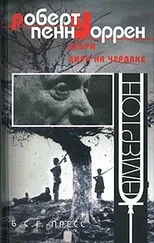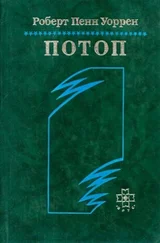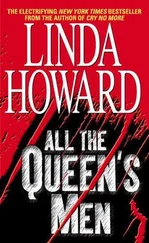Роберт Уоррен - All the king's men
Здесь есть возможность читать онлайн «Роберт Уоррен - All the king's men» весь текст электронной книги совершенно бесплатно (целиком полную версию без сокращений). В некоторых случаях можно слушать аудио, скачать через торрент в формате fb2 и присутствует краткое содержание. Жанр: Современная проза, на английском языке. Описание произведения, (предисловие) а так же отзывы посетителей доступны на портале библиотеки ЛибКат.
- Название:All the king's men
- Автор:
- Жанр:
- Год:неизвестен
- ISBN:нет данных
- Рейтинг книги:4 / 5. Голосов: 1
-
Избранное:Добавить в избранное
- Отзывы:
-
Ваша оценка:
- 80
- 1
- 2
- 3
- 4
- 5
All the king's men: краткое содержание, описание и аннотация
Предлагаем к чтению аннотацию, описание, краткое содержание или предисловие (зависит от того, что написал сам автор книги «All the king's men»). Если вы не нашли необходимую информацию о книге — напишите в комментариях, мы постараемся отыскать её.
All the king's men — читать онлайн бесплатно полную книгу (весь текст) целиком
Ниже представлен текст книги, разбитый по страницам. Система сохранения места последней прочитанной страницы, позволяет с удобством читать онлайн бесплатно книгу «All the king's men», без необходимости каждый раз заново искать на чём Вы остановились. Поставьте закладку, и сможете в любой момент перейти на страницу, на которой закончили чтение.
Интервал:
Закладка:
The tales were shot, too, with folk humor, and the ethical ambiguity of folk humor. The tales, like the politic conversations, were shot through, too, with violence – or rather, with hints of the possibility of violence. There was a hint of revolutionary desperation – often synthetically induced. In Louisiana, in '34 and '35, it took nothing to start a rumor of violence. There was going to be, you might hear, a "battle" at the airport at Baton Rouge. A young filling-station operator would proudly display his sawed-off automatic shotgun – I forget which "side" he was on, but I remember his fingers caressing the polished walnut of the stock. Long held a public investigation of an alleged conspiracy against his life, and you heard that the next day the arrests would be made. You heard that there was going to be a march on the Capitol – but not by whom or for what. And when Long stirred abroad he moved flanked by his armed guards.
Melodrama was the breath of life. There had been melodrama in the life I had known in Tennessee, but with a difference: in Tennessee the melodrama seemed to be different from the stuff of life, something superimposed upon life, but in Louisiana people lived melodrama – seemed to live, in fact, for t, for the strange combination of philosophy, humor, and violence. Life was a tale that you happened to be living – and that "Huey" happened to be living grandly before your eyes. And all the while I was reading Shakespeare and Jacobean tragedy, Dante and Machiavelli and Guicciardini, William James and American history – and all that I was reading seemed to come alive, in shadowy distortions and sudden clarities, in what I saw around me.
How directly did I try to transpose into fiction Huey P. Long and his world? The question answers itself in a single fact. The first version of my story was a verse drama; and the first serious writing began, in 1938, in the shade of an olive tree by a wheat field near Perugia. In other words, if you are sitting under an olive tree in Umbria and are writing a verse drama, the chances are that you are concerned more with the myth than with the fact, more with the symbolic than with the actual. And so it was. It could not, after all, have been otherwise, for the strict, literal sense, I had, as I have said, no idea what the then deceased Long had bee. What I knew was the "Huey" of the myth, and that was what I had taken with me to Mussolini's Italy, where the bully-boys wore black shirts and gave a funny salute, and the longer I stayed there the less tidy, in other ways too, seemed the popular parallel between "Huey" and "Musso."
I had no way of knowing what had ever gone on in the privacy of the heart of Senator Long. Now I could only hope, ambitiously, to know something of the heart of the Governor Talos of my play _Proud Flesh__. For Talos was the first version of my later Willie Stark, and the fact that I drew the name from the "iron groom" who, in murderous blankness, serves the Knight of Justice in Spenser's _Faerie Queene__ should indicate something of the line of thought and feeling that led up to that version and persisted, with modulations, into the novel.
In the novel Talos was to become Stark and _Proud Flesh__ (with its double meaning in the adjective) would become _All the King's Men__. Many things, some merely technical, led to this transformation, but a very important one was the fact that I felt the play too constricted to provide the human context that made possible the rise of the man of power: the man of power must fill, in some deep and secret way, some blankness in the people of this world. The change to the novel has some bearing, too, on the question of the ratio of fact to fiction. When, in 1943, I began the version that is more realistic, discursive, and documentary in method (though not in spirit) than the play, I had long since left Louisiana and the literal world in which the story had its roots. By now the literal world was only a memory, and therefore was ready to be absorbed more freely into the act of imagination. Even the old man by the roadside – the hitchhiker I had picked up on the way down to Baton Rouge to take my job – was ready to enter the story: he would become the hitchhiker whom Jack Burden picks up returning from Long Beach, California, the old man with the twitch in his face that gives Jack the idea of the Great Twitch. But my old Louisiana hitchhiker had no twitch in his face. Nor had I been Jack Burden.
I had not been Jack Burden except in so far as you have to try to "be" whatever you are trying to create. And in that sense, I was also Adam Stanton, and Willie Stark, and Sadie Burke, and Sugar Boy, and all the rest. And this brings me to my last notion. However important for my novel was the protracted dialectic between "Huey" on the one side, and me on the other, it was far less important, in the end, than that deeper and darker dialectic for which the images and actions of a novel are the only language. And however important was my acquaintance with Louisiana, that was far less important than my acquaintance with another country: for any novel, good or bad, must try, willy-nilly, to report the history, sociology and politics of a country even more fantastic than was Louisiana under the consulship of Huey.
As a sort of footnote, I may remark that when _All the King's Men__ first appeared in England, a section was omitted. That section – Chapter Four in the American version, and in this one – concerns a character of the time of the American Civil War; the original English publisher had decided that the subject would not interest his public. The omission was made with me consent, but I always felt that the section is central to the novel. When, in writing the book, I had come to the end of Chapter Three, I could not go on. I was afraid that my story would thin out into a narrative of mere intrigue, something like political shenanigans in a banana republic. I was afraid, too, that the narrator would become a mere narrator, nothing more than a technical convenience with no relation to the action. In other words, to put it into a crude short-hand, I felt that the general story would lack any deep moral dimension, and the narrator any deep psychological dimension.
So I struck on the notion of making Jack Burden, my narrator, a candidate for the Ph. D. in American history, doing a dissertation based on family papers. The character in the family papers – Cass Mastern by name – had, in his personal life and in the public event of the Civil War, come into a moral and psychological crisis. Cass had, however, finally found meaning in his life, and death, by trying to face the crisis. Burden, at the moment unable to find meaning in his own life, simply flees from the reproach implicit in the materials of the dissertation. So he is prepared, for the time being anyway, to accept another version of the world, a sort of mirror-image of that inhabited by Cass Mastern; he takes refuge in the one offered by Willie Stark.
But that is not the end of the story.
Robert Penn Warren
West Wardsboro, Vermont
July 14, 1973
Chapter One. MASON CITY
To get there you follow Highway 58, going northeast of the city, and it is a good highway and new. Or was new, that day we went up it. You look up the highway and it is straight for miles, coming at you, with the black line down the center coming at and at you, black and slick and tarry-shining against the white of the slab, and the heat dazzles up from the white slab so that only the black line is clear, coming at you with the whine of the tires, and if you don't quit staring at that line and don't take a few deep breaths and slap yourself hard on the back of the neck you'll hypnotize yourself and you'll come to just at the moment when the right font wheel hookers over into the black dirt shoulder off the slab, and you'll try to jerk her back on but you can't because the slab is high like a curb, and maybe you'll try to reach to turn off course. Then a nigger chopping cotton a mile away, he'll look up and see the little column of black smoke standing up above the vitriolic, arsenical green of the cotton rows, and up against the violent, metallic, throbbing blue of the sky, and he'll say, "Lawd God, hit's a-nudder one done done hit!" And the next nigger down the next row, he'll say, "Lawd God," and the first nigger will giggle, and the hoe will lift again and the blade will flash in the sun like a heliograph. Then a few days later the boys from the Highway Department will mark the spot with a little metal square on a metal rod stuck in the black dirt off the shoulder, the metal square painted white and on it in black a skull and crossbones. Later on love vine will climb up it, out of the weeds.
Читать дальшеИнтервал:
Закладка:
Похожие книги на «All the king's men»
Представляем Вашему вниманию похожие книги на «All the king's men» списком для выбора. Мы отобрали схожую по названию и смыслу литературу в надежде предоставить читателям больше вариантов отыскать новые, интересные, ещё непрочитанные произведения.
Обсуждение, отзывы о книге «All the king's men» и просто собственные мнения читателей. Оставьте ваши комментарии, напишите, что Вы думаете о произведении, его смысле или главных героях. Укажите что конкретно понравилось, а что нет, и почему Вы так считаете.





![Роберт Уоррен - Рассказы [Компиляция]](/books/419993/robert-uorren-rasskazy-kompilyaciya-thumb.webp)


